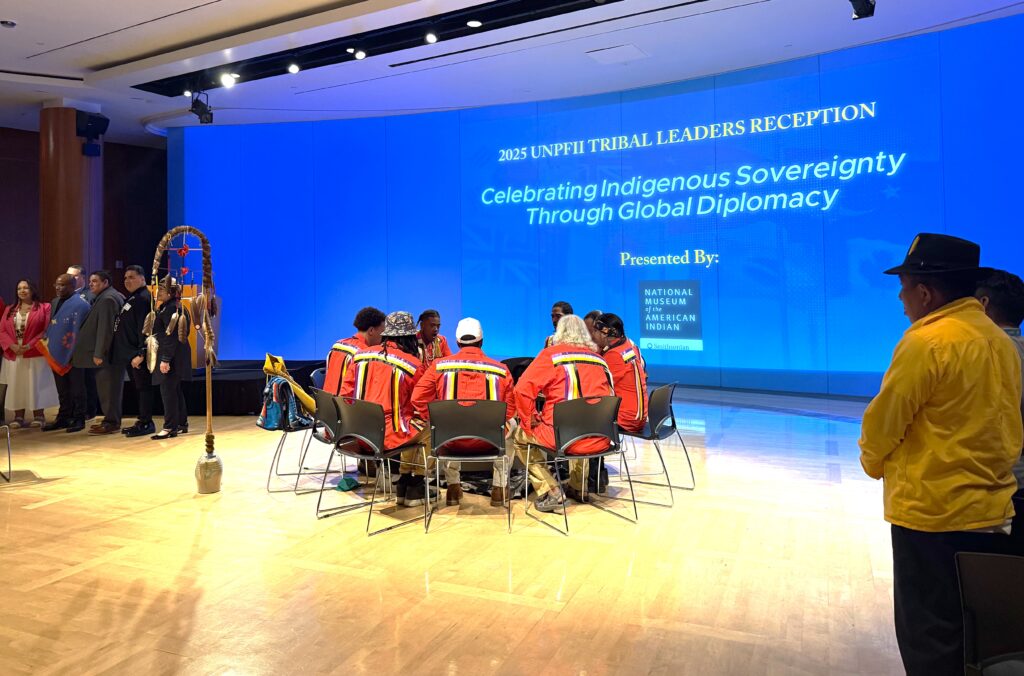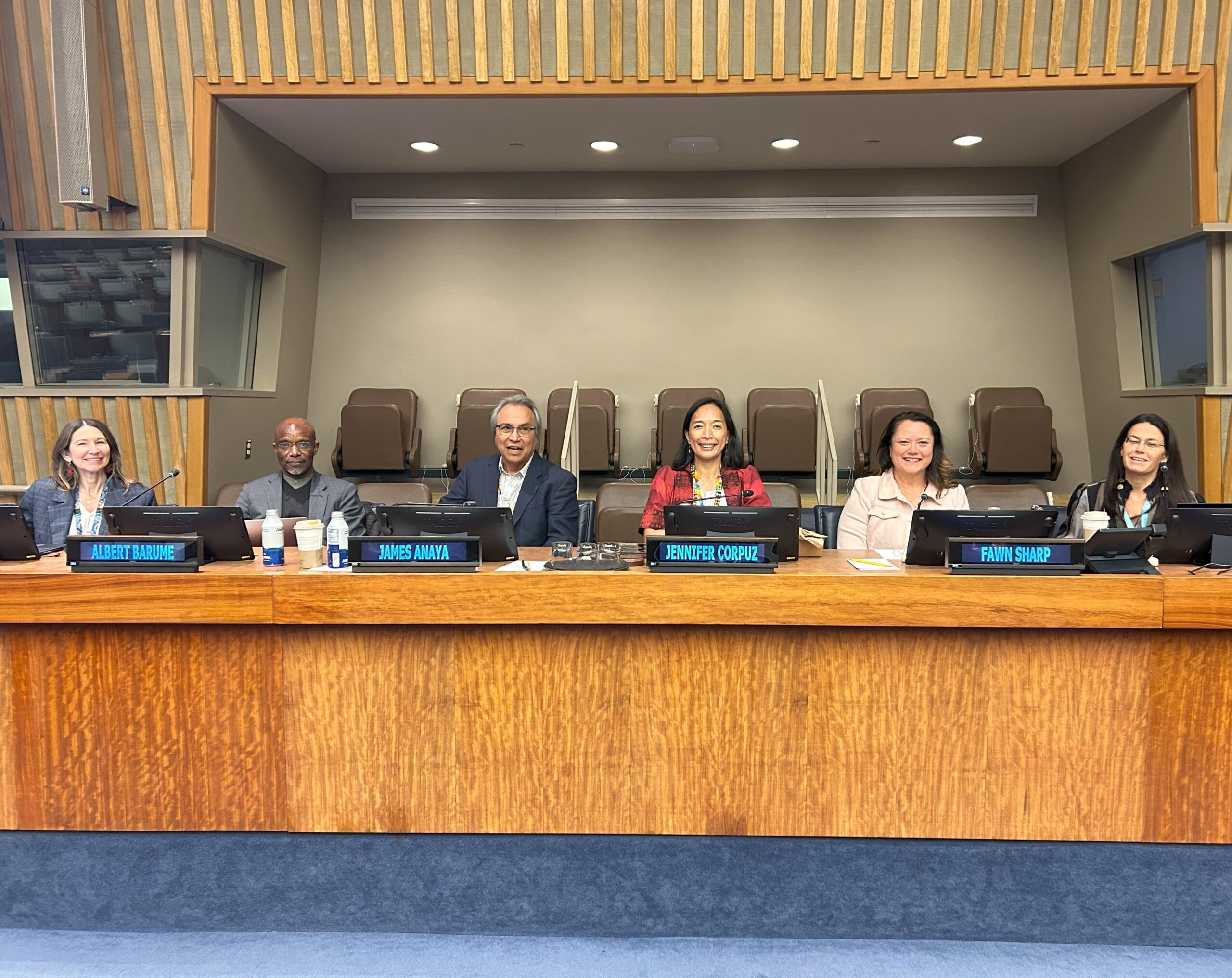The Implementation Project (TIP) attended the 24th Session of the United Nations Permanent Forum on Indigenous Issues in New York, NY, from April 21 to May 2, 2025, to support Indigenous leaders in advancing their diplomatic agendas, while sharing new research on operationalizing “free, prior, and informed consent.”

The theme of this year’s session was “Implementing the United Nations Declaration on the Rights of Indigenous Peoples within United Nations Member States and the United Nations system, including identifying good practices and addressing challenges.”
Drawing from its work to support advocacy and education on the Declaration, TIP highlighted measures by Tribal governments embracing the Declaration in Tribal law; called on the United States to continue its progress in advancing the aims of the Declaration; and urged states to sign, ratify, and implement the new World Intellectual Property Organization Treaty on Intellectual Property, Genetic Resources, and Associated Traditional Knowledge (GRATK Treaty).

Throughout the session, TIP collaborated with Tribal leaders, many of whom were gratified to see their recommendations reflected the Permanent Forum’s Report on the 24th Session (the report is available here).
Cherokee Nation Principal Chief Chuck Hoskin Jr. called on the U.S. to recognize its treaty promises to seat the Cherokee Nation’s delegate in the House of Representatives.
Bay Mills Indian Community President Whitney Gravelle called for the U.S. and Canada to cooperate with Tribes in safely decommissioning the Line 5 oil and gas pipeline, which poses threats to Indigenous Peoples’ rights throughout the Great Lakes region.
On behalf of the Native American Church – State of New Mexico, Attorney Linda Benally urged the U.S. to protect traditional knowledge related to plant medicines and urged the U.S. to sign and implement the GRATK Treaty.

Coquille Indian Tribe Vice Chair Jen Procter Andrews, representing the Indigenous Determinants of Health Alliance, introduced a report entitled, “Evaluating institutional structures to improve the health and wellness of Indigenous Peoples globally: the Indigenous determinants of health measurement instrument” as part of the 2030 Agenda for Sustainable Development. The report provides practical guidance on measures, including the use of Indigenous languages in health care delivery.
The National Congress of American Indians (NCAI) held its third annual Tribal Leaders Reception: Celebrating Indigenous Sovereignty through Global Diplomacy, welcoming over 100 Tribal leaders, Member State delegates, youth, and Indigenous Peoples’ organizations. NCAI Executive Director Larry Wright, Jr., emceed the event, which featured a keynote speech by the new UN Special Rapporteur on the Rights of Indigenous Peoples Dr. Albert K. Barume. TIP, the Native American Rights Fund, and the University of Colorado Law School co-sponsored the reception.


TIP’s side event “Implementing FPIC Across the Regions,” a comparative panel analyzing Free, Prior, and Informed Consent, attracted a large audience. Dr. Barume discussed the evolution of jurisprudence on FPIC, including a 2018 report of the Expert Mechanism on the Rights of Indigenous Peoples tying FPIC to the rights of self-determination and non-discrimination. Professor James Anaya discussed legislative measures in Latin America to operationalize the Declaration’s FPIC provisions. Ms. Jennifer Tauli-Corpuz emphasized the need to create culturally informed frameworks for consent protocols before engaging in negotiations on international and domestic agreements. Former NCAI President and former Quinault Indian Nation President Fawn Sharp provided a powerful example of Tribal FPIC implementation that influenced local oil divestment and changes to Washington state policies. TIP’s Co-Directors Kristen Carpenter and Sue Noe shared new research by Attorney Walter Echo-Hawk on Tribal lawmaking regarding FPIC.


Carpenter and Noe, together with Danielle Pourier and Emiliano Salazar, led TIP’s work at the Forum. Colleagues joining from the University of Colorado Law School were Dean Lolita Buckner Inniss, Professor James Anaya, Professor Christina Stanton, and law students Hannah Ahders, Sierra Meggitt, and Ella Merrill.
The 25th Session of the Permanent Forum will take place from April 21 to May 1, 2026, at UN Headquarters in New York City, focusing on the theme of “Ensuring Indigenous Peoples’ health, including in the context of conflict.”

